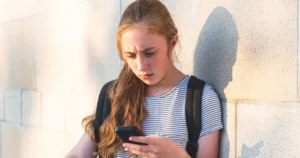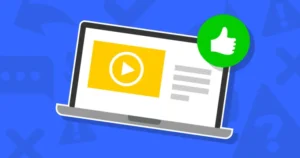Resources to deal with misinformation
Access support to deal with misinformation
Find support for tackling misinformation and disinformation online. From tools to helplines, these resources can support children and young people online. You can find additional support for yourself as well.
Useful resources
- Ofcom – Understanding online false information in the UK
- Ofcom – Children, social media and fake news
- Ofcom – Navigating news in an online world
- National Literacy Trust – Fake news and critical literacy final report
- BBC Bitesize – How fake news hijacks your brain
- BBC Bitesize – Can you sport the signs of fake news?
- BBC Bitesize – Fact or fake advice hub
- National Geographic – Real or fake
- Google Interland game for families
- Share Checklist – UK Government advice
- Social media privacy guides
- Connect Safely – Media literacy and fake news guide
- UK Safer Internet Centre – Fake news: 4 quick checks
- Snopes.com – A website that conducts extensive fact-checking research on popular topics
- BBC Reality Check – BBC News service dedicated to clearing up fake news
- Channel 4 FactCheck – The fact-checking arm of UK’s Channel 4 newsroom
- PolitiFact – Fact checking site that rates the accuracy of claims by elected officials
- BBC Teach – Resources from around the BBC to help students spot fake news
- The Guardian Education Centre – Resources for teachers
- National Literacy Trust – Fake news and critical literacy resources
- Childnet – Trust Me Toolkit
- UK Safer Internet Centre – Power of the image education pack for parents and carers
Featured misinformation articles
 Expert opinion
Expert opinion
How to counter online hate and extremism with young people
Hate and Extremism Analyst, Hannah Rose, shares insight into how young people might get involved online. Learn how to counter online hate and extremism to support children’s safety.
 News & blogs
News & blogs
What are algorithms? How to prevent echo chambers and keep children safe online
Algorithms are an important part of social media feeds, but they can create echo chambers which lead to issues of online hate, misinformation and more.
 Q&A
Q&A
Thinking critically about news on social media
Encourage children and young people to think critically about news they see on social media with expert advice from Dr. Elizabeth Milovidov and Lauren Seager-Smith.
 News & blogs
News & blogs
Cake Stories, #StoryTime and other misleading content
Cake stories or videos marked with #StoryTime often include inappropriate and misleading content hidden in their narration.
 News & blogs
News & blogs
Improving literacy in the age of technology
Improving literacy in children can make them more media literate and able to think critically about the news they see online. See what you can do to help.

